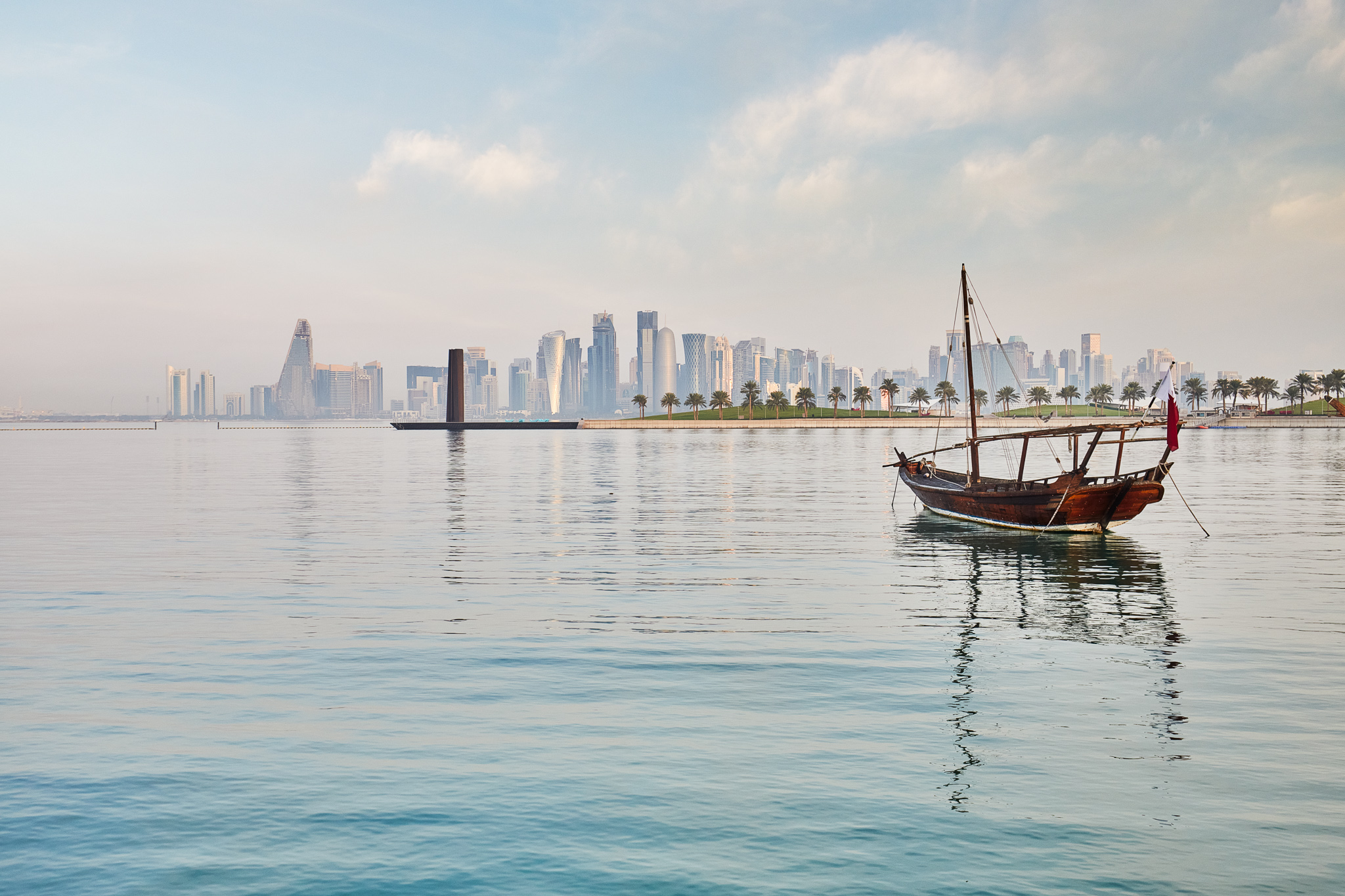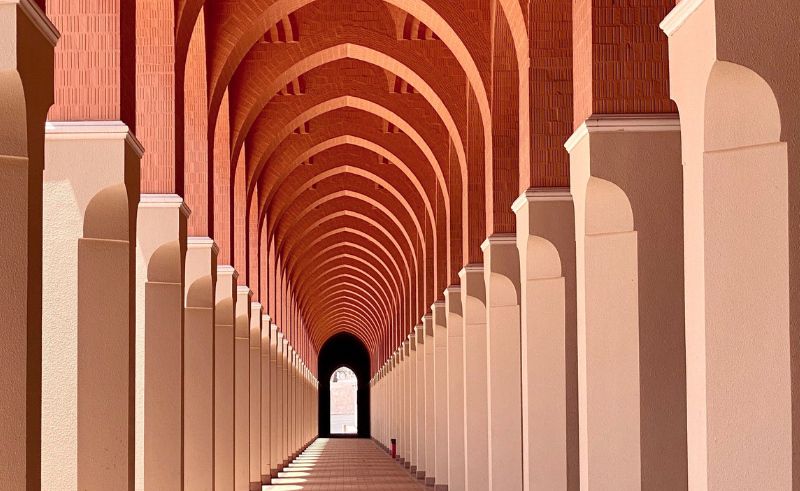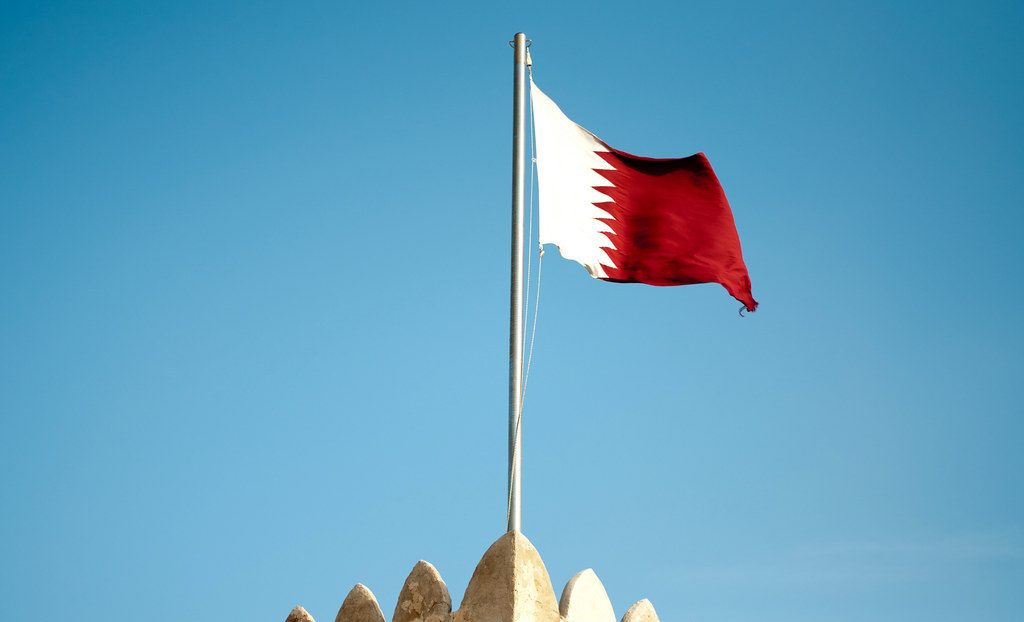
Freelance writer and Qatar resident Kirsty Rice was recently diagnosed with breast cancer in her home country of Australia. Here, she explains what everyone’s been asking – why she chose to treat her illness in Doha.
My breast cancer diagnosis arrived in the surrounds of a green and leafy suburban private hospital in Adelaide, Australia.
I was due to fly back to Doha in a couple of days; my four children were due to start school and I had to get back to work, the mammogram was one of those annoying last minute jobs to strike off the list.
The GP had suggested the mammogram “just to be sure.” I’d taken the children to see her the day before and ran through their bits and pieces: a stray cough, hay-fever, did that mole need to be removed from his neck?

“And what about you?” she’d asked after seeing the last child.
I’d taken a moment to think, almost search for an ailment.
“Oh! I had a lump checked out in Doha but it turned out to be a fatty cyst, just here under my arm.”
She asked to see it, made a phone call and booked me in for a mammogram the next day. I told her there was definitely nothing sinister, and that I really didn’t have time. Could I come back at Christmas? It’s just there’s packing to be done and I’m 100 percent sure it’s nothing – it turned out I was completely correct.
It was nothing.
Everything changes
It was the lump in the other breast that was sinister, the one neither she or I could feel, the fast growing triple negative aggressive breast cancer which was spotted on the mammogram and confirmed via ultrasound.
“You’re not flying anywhere,” the radiologist explained. That lump needs to come out now. I’ve seen enough cancers on the screen to know that that’s definitely breast cancer.
I’m making an appointment for you to see a breast surgeon this afternoon and we’ll get started on the biopsy and testing now.

I rang my husband who was in the middle of his Friday morning bike riding ritual in Doha and left a message. “Ring me when you get home.”
My tone and timing had him ringing me as he loaded his bike back into the car.
“They’re saying it’s breast cancer, they need to take it out, they’re saying I could fly back but they’d prefer I didn’t. They’ll have more information by 5pm this afternoon – they’ll know more about what they’re dealing with.”
As the words came out the tears followed – was this really happening to us?
He was on a plane back to Australia that night.
I’d like to say I was clear on my thoughts of where and how treatment would happen in those early days but that would be a lie.
I knew I’d have the surgery in Australia because it had to happen quickly, but when it came to chemotherapy and radiation I was conflicted.
Chemo
I’d remembered standing at a party in Doha talking to a woman in a head-scarf while she talked of splitting her treatment between countries.
My son had a teacher who had breast cancer who’d had all of her treatment in Doha and was really pleased with how it had all panned out.
I had no idea.

So I did what all expats do, I began my own investigating. I put a call out to friends – “anyone know anyone who’s been through chemo in Doha?”
I checked out the National Cancer Research Centre in Doha’s website – I managed to get the names of two nurses as well as their emails from friends in the know, and I immediately felt like things could work out.
I went to see an oncologist in Australia and asked for his thoughts, and if he could tell me what I needed was an easy process to replicate.
“Kirsty, chemo is basically a recipe, I can write it down and you can show it to your oncologist in Doha and I’m happy to talk it through with them.”
My chemo was set for a four-by-three weekly cycle. That meant that I would have chemo every 21 days, for four cycles, for a total of 12 weeks.
Here are the factors I had to weigh:
- Family. Did I want to be away from my husband and children for at least 12 weeks.
- Cost. In Doha the treatment is free, in Australia depending on insurance you’ll still end up with a hefty bill and expensive medicines.
- Care. In Doha you’ll automatically receive a PET scan to check every inch of body to assure you’re otherwise cancer-free. In Australia it’s only standard to check it’s not in your bones or chest. Also, in Doha each cancer patient receives a granulocyte colony stimulating factor the day after chemo. This is an injection that boosts your white blood cell count to help ward of infection. In Australia, this injection is only received if your blood cell count drops to dangerously low levels. If you want to you can pay for the injection yourself, for somewhere between $1,000 and $2,000.
Given these factors, it was a no-brainer for me. I would go back to Doha. If it didn’t work out I could go back home, but it all seemed to make much more sense for our family to go back to Doha. We needed to be together.
Lost in Hamad
I’ll admit it, my initial experience with Hamad wasn’t fun.
I got lost, I was sent to the wrong area, it was confusing.
Go to this desk, now go and pay at the cashier, then go to that desk. I made my way from desk-to-desk before I waited for three hours past my appointment time for 30 women to be seen before me.

The breast surgeon had seen 65 people before me that day. She was wonderful, precise, experienced, and quick to give a referral to an oncologist.
When I saw the oncologist a few days later, he read my notes and suggested an alternative course for treatment.
He explained why with great clarity and talked about his experience at MD Anderson in Houston and why his treatment would give me a 1 to 2 percent higher chance of survival – though it would take longer and involve different drugs.
He was quick to point out though that he had no issue with following the plan my oncologist in Australia had set out.
“It’s your choice entirely, you get to decide, I am more than happy to do what your doctor in Australia has said.”
For timing, we went with my original choice. Four-by-three weekly cycles, “okay, let’s get started on Wednesday.”
I was immediately booked in for a blood test, a PET scan and handed a prescription for drugs that would have cost me hundreds of dollars in Australia, but here cost 4QR – just over $1.50.
The first round
I’ve now been through my first round of chemo. I took friends along for support who were as welcomed and well-looked after as I was.
During the process I was seen by a GP, a dietician and pharmacist and attended to by caring and efficient nurses. And while there were occasions that I needed to clarify what was said like in any conversation overseas where you’re dealing with a mixture of nationalities – it all went incredibly well.

As someone who is currently learning about and understanding breast cancer, I can only give you these tips:
Early detection is key. I know you hear it all the time, but there’s a reason for that.
My lump was found early which meant chemotherapy gave me a higher than 90 percent chance of recovery.
I could have postponed that mammogram appointment, I could have returned to Doha with an aggressive tumor growing in my body. I could have waited until the lump was big enough that I felt it and it had made its way into my lymph nodes and my chances of survival were half as high.
Feel safe that you are in Doha, they know what they’re doing here.
Sure, the administrative side may take some getting used to, but you cannot fault the consultative care.
I’m glad to be having the treatment here, glad to still be picking up my children from school, putting them to bed at night, and sleeping side by side with my husband. I feel lucky to have my expat family and friends by my side.
Thoughts?
Kirsty is the author of the award winning expat blog 4 kids, 20 suitcases and a beagle and the co-host of the expat podcast Two Fat Expats Kirsty will be hosting a breast cancer awareness coffee morning on the 27th October. You can find details on both of the Facebook pages 4 kids, 20 suitcases and a beagle, or Two Fat Expats.







